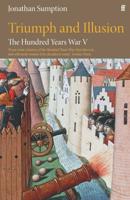Publisher's Synopsis
Hungary in its modern (post-1946) borders roughly corresponds to the Great Hungarian Plain (the Pannonian basin). During the Iron Age, it was located at the crossroads between the cultural spheres of the Celtic Tribes (such as the Scordisci, Boii, and Veneti), Dalmatian Tribes (such as the Dalmatian, Histri, and Liburni), and the Germanic Tribes (such as the Luigi and Marcomanni).
The name "Pannonian" comes from Pannonia, a province of the Roman Empire. Only the western part of the territory (the so-called Transdanubia) of modern Hungary formed part of the ancient Roman Province of Pannonia. The Roman control collapsed with the Hunnic invasions of 370-410 and Pannonia was part of the Ostrogothic Kingdom during the late 5th to mid 6th century, succeeded by the Avar Khaganate (6th to 9th centuries) civil. The Magyar invasion took place during the 9th century.
This book is an emotive journey through time, exploring the trials and tribulations one family faced from the fatherless boy who joined the army to fight Napoleon, through two world wars, the truncation of Transylvania, the communist oppression of Hungary, and migration into a new millennium.
Written by a great-great-great-granddaughter and told through the possessions, diaries, and letters that have survived, even if only in memory, Apricot Dumplings is a funny, touching, heart-warming, and jubilantly loving exploration of what it means to be Hungarian, of the importance of family, and the strength of human spirit.









